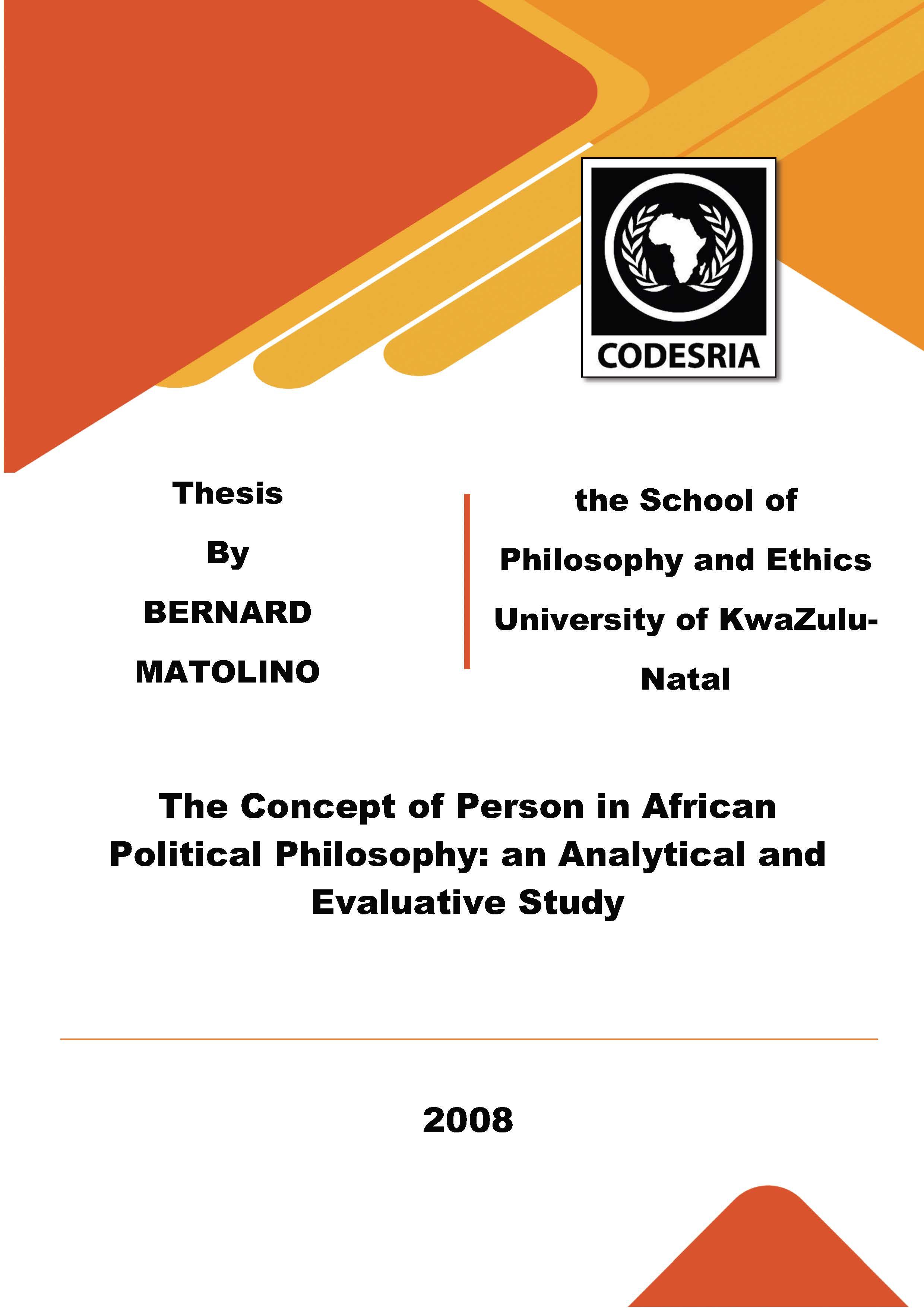The Concept of Person in African Political Philosophy: an Analytical and Evaluative Study
Mots-clés :
Concept, Person, African Political Philosophy, StudySynopsis
The communitarian conception of person is the dominant view of personhood in African philosophy. This view centrally holds that personhood is something that is attained in direct proportion to one's moral worth and one's relations with her
surrounding community. This view understands personhood as something that is acquired as one's moral responsibility grows. Essentially personhood is constituted by the community and expressed in relations that one has with her community. Thus the
individual and the community are both tied in the same fate. The individual is seen as constituted by the community and as one with the community. Whatever happens to her happens to the whole community.
Sorne leaders of newly independent Africa used this communitarian view of personhood to argue for a socialist order. Such an order would have been faithful to the traditional communitarian conception of person and the social as well as the economic order that proceeds from that conception. In order to develop an authentically African socialist programme these leaders strived to show that the communitarian conception of personhood naturally leads to African socialism. They took African socialism to be a panacea to economic and social ills that had been brought on by colonialism.
This thesis seeks to interrogate both the communitarian conception of personhood and the alleged resultant political ideology of African socialism. Thus the main problem that this thesis seeks to interrogate is whether the communitarian conception of
personhood is philosophically defensible, secondly whether there is a justifiable link between this concept and African socialism and whether African socialism is essentially of an African origin. It is argued that the major driving factor behind the
development of the communitarian view and African socialism is the belief that Africans are essentially different from their Western counterparts. The problem started with Placide Tempels' futile search for an African ontology and has been
perpetuated by all communitarians and African socialists. Thus this project is conceived as a philosophical critique of African communitarianism and the alleged resultant socialism. The three main criticisms that are attempted in thesis are the
philosophical plausibility of communitarianism itself, the alleged entailment of African socialism by communitarianism and the plausibility of African socialism itself.
The merit of this thesis lies in its sustained philosophical critique of communitarianism in itself and as an alleged basis of African socialism. The novelty of the project lies in the manner the thesis challenges the accepted dominance of communitarianism in the conception of person. The thesis also makes a useful distinction between the communitarian and metaphysical distinctions of the conception of personhood in African thinking. The novel contribution that this research makes to ongoing research in this field is its sustained critique of communitarianism in itself and its alleged link to A:frican socialism.
Téléchargements
Références
Achebe, C. 1998. ""Chi" in Igbo Cosmology" in Eze, E.C. (ed). African Philosophy: An Anthology. Oxford: Blackwell Publishers Ltd, pp 67-72.
Adeofe, L. 2004. "Personal Identity in African Metaphysics" in Brown, L.M. ( ed).
African Philosophy: New and Traditional Perspectives. New York: Oxford University Press, pp 69-83.
Akoko, P.M. 1995. "An Interview with H. Odera Oruka (ca late 1970s)" in Hord, F.L. and Lee, J.S. (eds). I am Recause We Are: Readings in Black Philosophy. Massachusetts: The University of Massachusetts Press, pp 32-44.
Appiah, K.A. 1992. In My Father's House: Africain the Philosophy of Culture. London: Methuen.
Appiah, K.A. 1998. "Ethnophilosophy and its Critics" in Coetzee, P.H. and Roux, A.P.J. (eds). Philosophy from Africa: A Text with Readings. Johannesburg: International Thomson Publishing Southern Africa (Pty) Ltd, pp 109-133.
Appiah, K.A. 2001. "Ethnie Identity as a Political Resourse" in Kiros, T. (ed). Explorations in African Political Thought. New York: Routledge, pp 45-53.
Appiah, K.A. 2004. "Akan and Euro-American Concepts of the Persan" in Brown, L.M. (ed). African Philosophy: New and Traditional Perspectives. New York: Oxford University Press, pp 21-34.
Ayittey, G.B.N. 1991. Africa Betrayed. New York: St Martins Press.
Ayittey, G.B.N. 1998. Africain Chaos. Basingstoke: Macmillan.






